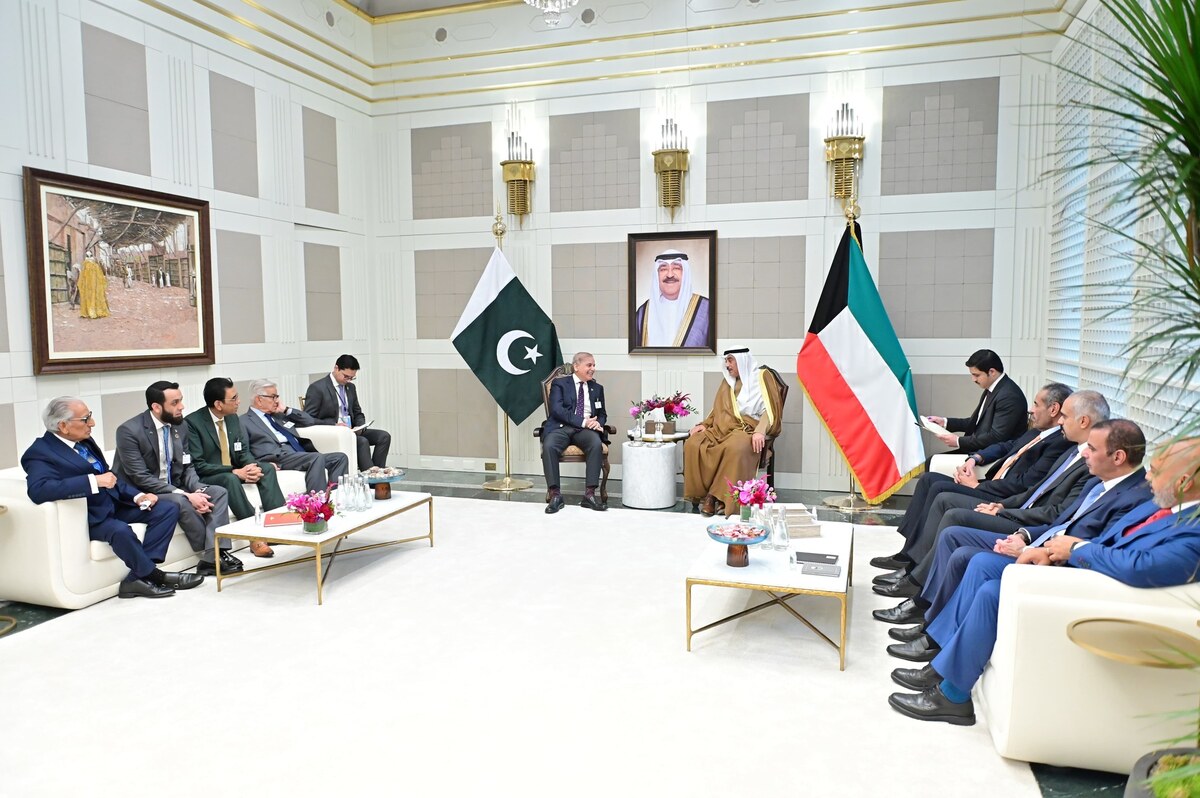ISLAMABAD: Pakistani Prime Minister Shehbaz Sharif on Wednesday met UN Secretary-General António Guterres on the side-lines of the 79th Session of the UN General Assembly and urged the international community to hold Israel accountable for its “genocidal campaign” against Palestine.
The nearly year-long war between Israel and Palestinian group Hamas in the besieged Gaza Strip now threatens to engulf Lebanon, where Israel targeted more than a thousand Hezbollah targets this week. Since Monday, Lebanon’s deadliest day of violence in decades, the health ministry says more than 560 people, among them 50 children, have died in air barrages.
In Gaza, the latest death toll stands at over 42,183 Palestinians killed since Oct. 7.
“The Prime Minister condemned Israel’s genocidal campaign against the Palestinians, and called for an immediate and unconditional ceasefire,” Sharif’s office said in a statement after his meeting with the UN chief.
“He also urged the international community to hold Israel accountable. He reaffirmed Pakistan’s support for the establishment of a viable and sovereign State of Palestine.”
Earlier, while speaking to media, Sharif condemned Israel’s “catastrophic” airstrikes on Lebanon and called for an immediate ceasefire.
“The recent attack launched in Beirut is nothing but a ploy to expand this war theater, which will be catastrophic for this peace-loving world,” the prime minister told reporters. “And I think we must all condemn this act on the part of Israelis.”
“Two-state solution [to the Palestine-Israel conflict] is the only answer,” he added. “Immediate ceasefire and then a two-state solution. There is no other option.”
The Israeli airstrike on Beirut killed a senior Hezbollah commander on Sept. 24 as cross-border rocket attacks by both sides increased fears of a full-fledged war in the Middle East and Lebanon said only Washington could help end the fighting.
The UN Security Council is expected to meet later today to discuss the conflict.
BILATERAL MEETING
On Wednesday, Sharif also met with Crown Prince of Kuwait Sheikh Sabah Al-Khaled Al-Sabah and reviewed the spectrum of bilateral relations, ranging from political, economic and defense cooperation to people-people exchanges.

Pakistan Prime Minister Shehbaz Sharif holds a meeting with the Crown Prince of Kuwait Sheikh Sabah Al-Khaled Al-Hamad Al-Mubarak Al-Sabah on the sidelines of the 79th United Nations General Assembly Session in New York on September 25, 2024. (PMO)
Last year, Pakistan signed 10 multibillion-dollar agreements with Kuwait aimed at boosting cooperation in sectors such as trade, energy, information technology, labor and infrastructure development.
As part of the government’s broader engagement with the Middle East, these agreements included Pakistan’s request for greater recruitment of its workers in Kuwait, particularly in the fields of health, security and construction.
“The Prime Minister of Pakistan expressed his desire to engage with Kuwait in mutually beneficial economic investments under the rubric of Special Investment Facilitation Council,” his office said in a statement issued after the meeting with the crown prince, referring to a hybrid civil-military body set up last year to facilitate foreign businesses.
Both leaders said they would closely collaborate bilaterally as well as on regional and global issues of mutual interest.


















